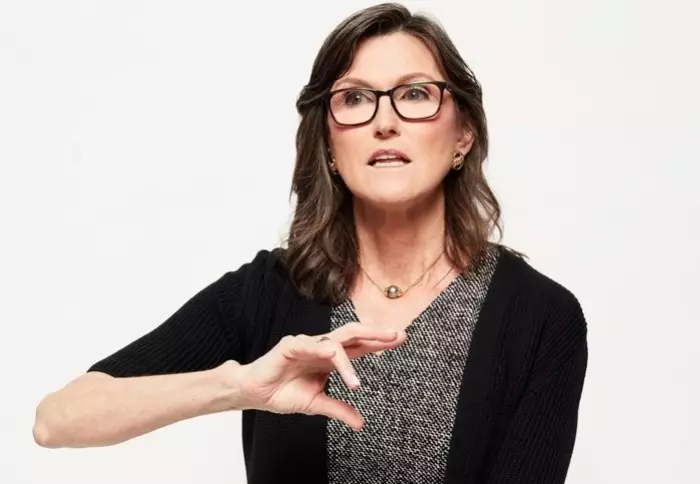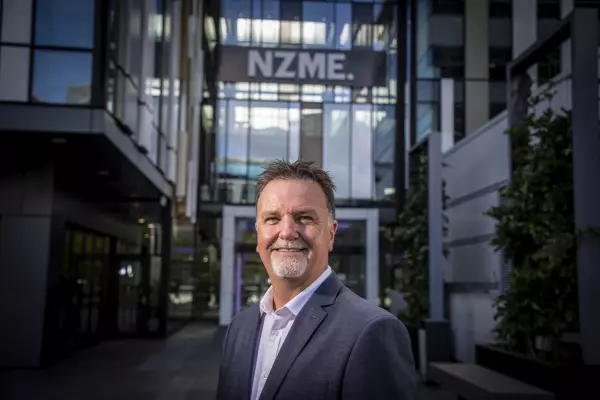Traditional fund managers fleeing to the safety of index-hugging strategies are behind the carnage seen in publicly listed innovation stocks, said Ark Innovation founder Cathie Wood.
Speaking at her company's Big Ideas one-day virtual event, Wood said innovation stocks have been "ravaged" over the past year in public markets, although not in private markets as fears about inflation and rising interest rates started to take hold.
At first, the ravaging caused by these fears were confined almost exclusively to innovation stocks aside from the handful of major tech stocks, such as Meta, Alphabet and Amazon, but now it's spreading throughout the market, Wood said.
"Innovation stocks are down broadly 50% to 75% in the last year. That's as bad as it got during 2008/09," she said.
"But in private markets, we're seeing one example after another where pricing is up 50% to 100%.
"I think private markets do have it, they're more correct about what they should be discounting right now."
Wood's own flagship exchange-traded fund (ETF), which started in 2014, is down more than 49% in the last year while the tech-heavy Nasdaq Index has been flat, largely thanks to those major stocks, and the broader measure of the US market, the S&P 500 Index, has gained more than 13%.
Hugging benchmarks
"Moving to risk-off for many traditional fund managers means getting back to your benchmarks" and that has meant "they're short true innovation. The innovation they're capturing is mostly in the mega-market-cap stocks," Wood said.
"They're selling the real innovation stocks out there."
She described Ark as "index agnostic" and said her company operates on a five-year horizon whereas other fund managers have a much shorter focus.
By her own measure, her flagship ETF is still ahead; despite its torrid last 12 months, it is up more than 220% over the last five years compared with the Nasdaq's 103% and the S&P 500's 92% gain.
Wood said Ark is trying to capitalise on the inefficiencies in the market which is partly due to analysts at traditional fund managers focusing very narrowly on a particular sector or sub-sector and with a very short-term focus.
Ark believes technologies are converging and will disrupt a broad range of industries, but traditional analysts aren't able to see that "as clearly as we are".
"We're looking for them".
In particular, artificial intelligence "is a glue that's pulling these technologies together", she said.
Ark is a firm believer in "Wright's law", a theory outlined by aeronautical engineer Theodore Wright in 1936 that states that for every cumulative doubling of units produced, costs will fall by a constant percentage.
Falling costs
As her website explains, Wright found the cost to produce the 2,000th plane was 15% less than to produce the 1,000th plane and the cost to produce the 4,000th plan was 15% less than for the 2000th.
Ark applies that to its forecasts for what will happen to the cost of new technologies, such as lithium-ion batteries and what those falling costs do to products such as Tesla's electric cars.
Wood's flagship fund has made a big bet on Tesla, its largest holding with a 7.9% stake. The decline in the fund has been despite Telsa shares gaining 8.7% in the last 12 months.
"If we're right, there's going to be a lot of creative destruction in the traditional world order," she said.
Wood labelled the way Ark is being written about by some journalists as "unfortunate when journalists are using end-point sensitivities" to produce coverage that is "really quite unfair".
Certainly, Ark and Wood have been attracting lots of cruel headlines: "ARKK, Cathie Wood and the bursting bubble (ARKK is the flagship fund's ticker);" "Is this the end of Cathie Wood?"; and "Cathie Wood's Ark portfolio is headed for a shipwreck".
Meanwhile, Bloomberg is reporting shorting of her three largest ETFs is near record levels and "suggest more pain ahead".















